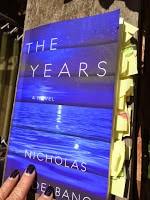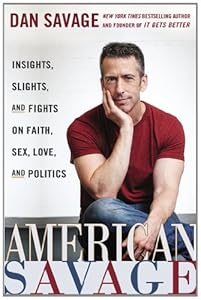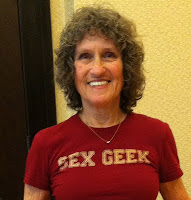Posts Tagged ‘books’
The Years by Nicholas Delbanco
It isn’t often that I find a novel to recommend to you that portrays characters our age in a way that’s relevant, realistic, and insightful about aging and relationships. As a reader, I want to connect with characters and plot lines that I can relate to at this time of my life (age 71 as I write this) via beautifully crafted fiction.
The Years by Nicholas Delbanco is a splendid example of the kind of book I love to read. It’s literary fiction, not a quick or mindless read. It’s achingly honest about aging.
How did it happen, Lawrence wondered, that the person in the mirror was sprouting liver spots and wrinkles and hair in his nostrils and ears?
You’ll invest some brain power in following the non-chronological sequencing. We meet Lawrence and Hermia when they re-meet in 2004 on a cruise ship after more than 40 years apart. He’s 64; she’s 63. The book flits back and forth from 2004 to their past. We learn how they met and fell in love in college, how they broke up and drifted apart, different relationships that shaped each of them as they journeyed through their lives, and the scars and regrets they carry with them.
They leaned toward each other, pressed against each other, and she wondered what her breasts would feel like if he kissed them as he used to, and what would happen next. She saw them in the mirror, two bent gray heads adjacent in the ornate gilt-framed glass, saw them touching lips and cheeks as though performing for the camera in some sort of time-lapse photograph, a present overlay upon the past.
Yes, we can anticipate that this chance meeting will lead to a renewed love connection, but the book is still not predictable. In the latter half of the book, we move forward through the time after they reconnect. There are surprises, which I won’t reveal, and even the predictable parts are nuanced, never trite.
It’s rare to find a novel that speaks realistically about love and aging and includes sex. The sex scenes are tender, slow to unfold, and not graphic. For example:
They had been passionate together the way the young are passionate, and nothing in her life before had readied her for how they fit together or how she, holding him, felt … That passion was not spent. It was spent in the physical sense, of course; she could no longer manage, and he could not manage, the revels of the young … But it was like The Tempest; it was everything restored, made whole, old treacheries forgiven and old arguments resolved. What had been lost was found. They were gentle together now, slow. It was strange to be so much in love with someone she had loved before and known so well and parted from and then spent more than forty years not knowing….
 I found the writing masterful. I put post-its throughout my copy to remind me of pages I wanted to return to, and this photo shows what my book looks like now.
I found the writing masterful. I put post-its throughout my copy to remind me of pages I wanted to return to, and this photo shows what my book looks like now.
The Amazon ratings are mixed, and I’d love to know the age breakdown for those who loved and those who were bored by this novel. I suspect that the negative reviews were by younger readers or those who don’t have patience for literary fiction that is slow to unfold. At our age, we know that life is slow to unfold, and we don’t need to rush a book any more than we have to rush sex these days! I can’t imagine readers in their sixties and beyond being unmoved by this novel.
If what I’ve written here intrigues you, I hope you’ll read The Years and post your own comments.
 |
| Nicholas Delbanco, born 1942 |
Daring to Date Again by Ann Anderson Evans
3/11/15 update: This Sunday, March 15, I’ll have the pleasure of being on a panel with Ann Anderson Evans called “Never Too Late to Date” at the Tucson Festival of Books. I’m moving this post, originally published 11/13/14, to the top so that you all know about Ann’s book and our discussion of safer sex:
When a sixty-year-old, twice-divorced woman starts to date again, she’s not pinning her hopes on an invitation to the prom. She is financially stable and professionally creditialed. She is a matriarch, a pillar of her church, a member of a choir. She has children and neighbors who might disapprove. She has a lot at stake.
So begins Daring to Date Again, a lusty memoir by Ann Anderson Evans about looking for romp-in-the-hay partners after 12 years of celibacy.
Evans is smart, sassy, articulate, and a darned good writer, pulling you right into her adventures. You’ll laugh, empathize, and sometimes worry as she jumps into bed with her Mr. Right-for-the-Moment parade. She wears her heart on her sleeve—or she wears nothing at all—and we share her adventures, her thoughts, her desires, and her evolution from repressed and unhappy to evolved, sexy, and joyful.
Evans finds many men who are interested in having no-strings sex with her, but towards the end of the book, she wonders whether true love even exists — and if so, where is it hiding? I’m not ruining the book by telling you that she meets Terry — a fellow professor and a bachelor at 63. They fall in love and marry. But that’s not until the last chapter!
I enjoyed this well-written book, and I recommend it to you, whether you’re exploring sexual possibilities yourself or you just want to share her escapades vicariously.
However! As a safer-sex advocate, I was concerned because there was no mention of safer sex or any discussions of condom use with the men Evans bedded. I questioned her — no, they never used protection. Then I challenged her to explain her decision(s). She wrote this to me:
Joan chided me for not mentioning safe sex in Daring to Date Again. Logic suggests that simply interrogating a man regarding his sexual health is not sufficient protection, but that is what I relied upon. Why was I more concerned about cleaning the chopping block after cutting up chicken than about having unprotected sex? Why would I maintain the prophylactic habits of regular dental visits and colonoscopies, and yet have unprotected sex? Good question, Joan.
Indulgence was part of it. Pregnancy had been such a persistent worry when I was a young woman that having sex spontaneously was a joy. It was like winning the lottery.
Growing up in the 50s and 60s, I was taught either nothing or nonsense about sex. The bogus teachings were embedded in religion. “Chastity is the cement of civilization,” I read in the Christian Science scriptural companion, the Science & Health, when I was a student in a Christian Science college. I closed that book and have never reopened it.
The nonsense of the times I grew up in was also embedded in school. My only sex education was a couple of gender-divided classes in 7th grade that explained menstruation twinned with the unforgettable fact that when we brushed our teeth we should also be careful to brush our tongues. I was stunned when I got pregnant at 18. I thought I had to want to become pregnant in order to be so.
Between the church and school, I felt manipulated, demeaned, and endangered. Many of those who matured in the 60s rose up in mighty defiance of the bullying traditions of ignorance. In answering Joan’s challenge, I am surprised at my resurgence of anger when I think back.
Perhaps unconsciously, I placed barrier protection during sex in the basket which also included the bogus virtues of chastity, heterosexuality, sitting primly with your legs crossed, wearing a girdle, avoiding nudity, and virginity upon marriage. These virtues are so often ignored that they can only be seen as vacuous wishes. My failure to protect myself was a visceral, instinctive, and senseless act of defiance.
I take responsibility for my own actions, but it would have been helpful if the doctors (including gynecologists) had asked me if I was sexually active during that time. One general practitioner did ask me, and when I told him I had had sex with four men within the last two years he sidestepped the issue, saying, “I think you should talk to your gynecologist about that.”
I sympathize with the doctors. Discussions of sex with patients are probably minefields of religion, politics, family tradition, and personal history. But the medical profession has obviously given up the fight. How often do you see an ad for condoms displayed in your doctor’s office alongside the latest drug for depression or high blood pressure?
I felt embattled during my three years of promiscuity. Not one of the men I was involved with ever mentioned using a condom. If any of them had one in their pocket, they didn’t mention it. Joan might be better equipped to say whether men are just as likely as women to insist on condom use. In my experience, this has not been the case.
The problem of unprotected sex is far more pervasive than that of a single American raised before the Enlightenment. Our failure to identify and rectify the sociological, psychological, historical, and political reasons why people do not use condoms or other barriers has guaranteed that AIDS and other STDs continue worldwide. Saying the answer is education is simplistic. Why we don’t use them is baffling. The reason begins in the outside world of church, school, family, and government policy and all of these play themselves out in the bedroom.
Thank you, Ann, for your eloquent explanation. I can’t help hoisting my 4’10” self up onto my soapbox again to remind my readers: Have all the fun you want, but please have it safely!
 Listen to Evans read an excerpt from Daring to Date Again here.
Listen to Evans read an excerpt from Daring to Date Again here.American Savage by Dan Savage: book review
 Dan Savage is an outspoken, irreverent, gay sex columnist who gives sex advice to all genders and orientations at Savage Love and on his podcast. With his husband Terry*, he started the “It Gets Better” video project, designed to help kids who are bullied realize that it does get better.
Dan Savage is an outspoken, irreverent, gay sex columnist who gives sex advice to all genders and orientations at Savage Love and on his podcast. With his husband Terry*, he started the “It Gets Better” video project, designed to help kids who are bullied realize that it does get better.
So I was prepared to like Dan’s new book. I had no idea that I would love it, highlight it, bookmark it, rave about it. I had no idea that Dan could write so eloquently, and from the heart. For example:
- “Sex education in America is a lot like a driver’s-ed course that covers the internal combustion but not steering or brakes…so long as we skip past pleasure, desire, and negotiating a romantic or sexual relationship … we aren’t really teaching young adults about sex.”
- “Fighting your sexuality is like holding your breath: It can be done, yes, but not for long (when it comes to your breath) and not forever (when it comes to your sexuality).”
Politically, Dan is razor-sharp. His one-hour, dinner table debate with Brian Brown, President of the National Organization for Marriage, about gay marriage is worth watching on YouTube — but what you don’t know about what happened before and after the debate is here in American Savage, such as the one question Terry asked after the debate was over:
“Do you think our son should be taken away from us?”
“You shouldn’t ask me a question when you know you won’t like the answer,” Brown said.
“Get the fuck out of my house,” Terry said.
Dan’s personal stories are moving, especially when he writes about his mother’s death, his husband, or his son. Each time he speaks from his heart with a story from his own life, it is to illustrate or lead us to an important point.
Dan Savage makes you think about things you thought you knew. For example, when is/isn’t it okay to cheat?
“We are socially monogamous — we pair bond; we couple up… but we are not sexually monogamous… The fact that your partner is willing to ‘forsake all others’ only means something is your partner doesn’t, on some level, want to forsake all others. and your partner doesn’t.”
How can you help laughing when he writes about Rick Santorum (“then the third most powerful person in the United States Senate [who] equated gay people to child rapists and dogfuckers”) and Dan’s campaign to launch a new meaning for the word “santorum”: “the frothy mixture of lube and fecal matter that is sometimes the byproduct of anal sex” in our culture and in Google searches.
I could go on for another hour, but here’s the bottom line: I recommend American Savage to everyone, straight or gay, who cares about how confused our culture is about sexuality and religion and politics. Please read this book and share it with people in your life who agree with you — and those who don’t.
*Okay, since I’m being honest here — I drool over the photo of Dan’s husband Terry posing in underwear, which I’ll share here with you, at the risk of undermining the intellectual nature of this book review.
 |
| Terry posing in underwear |
Best Sex Writing 2013: book review
 Every year, I look forward to the new edition of the Best Sex Writing series from Cleis Press. This year’s Best Sex Writing 2013: The State of Today’s Sexual Culture offers 20 sex-themed, nonfiction essays, previously published in magazines and on websites as diverse as Playboy, Salon.com, New York magazine, The Atlantic.com, and Church & State Magazine.
Every year, I look forward to the new edition of the Best Sex Writing series from Cleis Press. This year’s Best Sex Writing 2013: The State of Today’s Sexual Culture offers 20 sex-themed, nonfiction essays, previously published in magazines and on websites as diverse as Playboy, Salon.com, New York magazine, The Atlantic.com, and Church & State Magazine.
Since this blog is for sex-positive people age 50+, I always check out the essays about or by our age group first. These two emerged as my favorites:
- “Ghosts: All My Men Are Dead” by Carol Queen stunned me with its beautiful writing and poignant content. Queen writes from the heart about the men in her life whom she lost to AIDS, interspersed with her own story of her sexual blooming in San Francisco, a self-described “small-town dyke who really wanted to fuck practically every gay man she ever saw.” For those of us who lived through the bewildering beginning of AIDS and the ensuing grief, fear, and loss, this essay is particularly moving, though I challenge anyone of any age to read it with dry eyes.
- “Very Legal: Sex and Love in Retirement” by Alex Morris is a fascinating look at the dating lives of residents age 70+ to 90 at Flushing House, an independent living facility in Queens, NY. “There’s a practicality that comes with knowing there are certain undeniable limits to how long a romance can last, or what romance at the age of eighty-five even means,” Morris writes. What about sex? Al, age 89, keeps Viagra in a plastic bag in his shirt pocket. “You know, sex isn’t everything, but it has a lot to do with it,” he says. “An awful lot to do with it.”
 I don’t mean to imply that only the essays by writers of our age or addressing issues affecting our demographic will interest you — not at all! You’ll be as absorbed as I was by most of the essays here. Some are political; some are intensely personal. All are well-chosen and well-written. If you’re a sex geek, as I am, you’ll devour this book.
I don’t mean to imply that only the essays by writers of our age or addressing issues affecting our demographic will interest you — not at all! You’ll be as absorbed as I was by most of the essays here. Some are political; some are intensely personal. All are well-chosen and well-written. If you’re a sex geek, as I am, you’ll devour this book.
Cleis’s own book description says it well:
The Best Sex Writing series has fundamentally changed the way people think—and what they say—about sexuality. Rachel Kramer Bussel has collected the year’s most challenging, literate and provocative pieces on this endlessly fascinating subject.
 This is not an exaggeration. Thank you, editor Rachel Kramer Bussel and guest judge Carol Queen for this superb anthology. And thank you, Cleis Press, for always being a staunch supporter of a sex-positive view of the world.
This is not an exaggeration. Thank you, editor Rachel Kramer Bussel and guest judge Carol Queen for this superb anthology. And thank you, Cleis Press, for always being a staunch supporter of a sex-positive view of the world.
Best Sex Writing editor Rachel Kramer Bussel is a prolific author, editor and blogger. She has edited over forty books of erotica, and has been published in over one hundred anthologies. She blogs at lustylady.blogspot.com.
Learn more about Best Sex Writing 2013 here.

